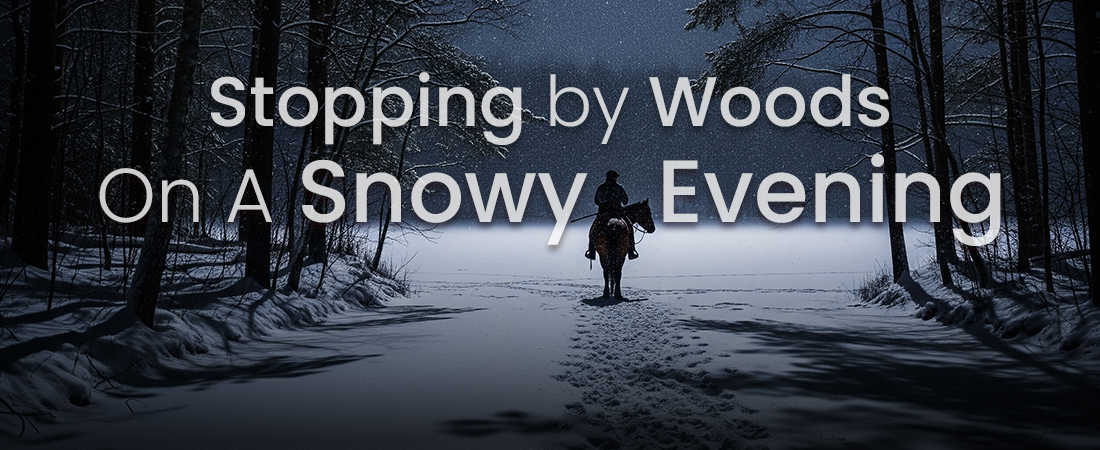
By Robert Frost
Whose woods these are I think I know.
His house is in the village though;
He will not see me stopping here
To watch his woods fill up with snow.
My little horse must think it queer
To stop without a farmhouse near
Between the woods and frozen lake
The darkest evening of the year.
He gives his harness bells a shake
To ask if there is some mistake.
The only other sound’s the sweep
Of easy wind and downy flake.
The woods are lovely, dark and deep,
But I have promises to keep,
And miles to go before I sleep,
And miles to go before I sleep.
Stopping by Woods on a Snowy Evening was written by Robert Frost in 1922 and published in his 1923 collection New Hampshire, which won him one of his four Pulitzer Prizes. He reportedly wrote it in a single sitting after working through the night on another poem.
Structurally, it’s made up of four quatrains (four-line stanzas) and follows an AABA rhyme scheme, with the final stanza repeating the B rhyme for emphasis. The poem is admired for its simplicity, quiet imagery, and haunting final lines—“And miles to go before I sleep.”—which suggest deeper themes of duty, mortality, and contemplation.


